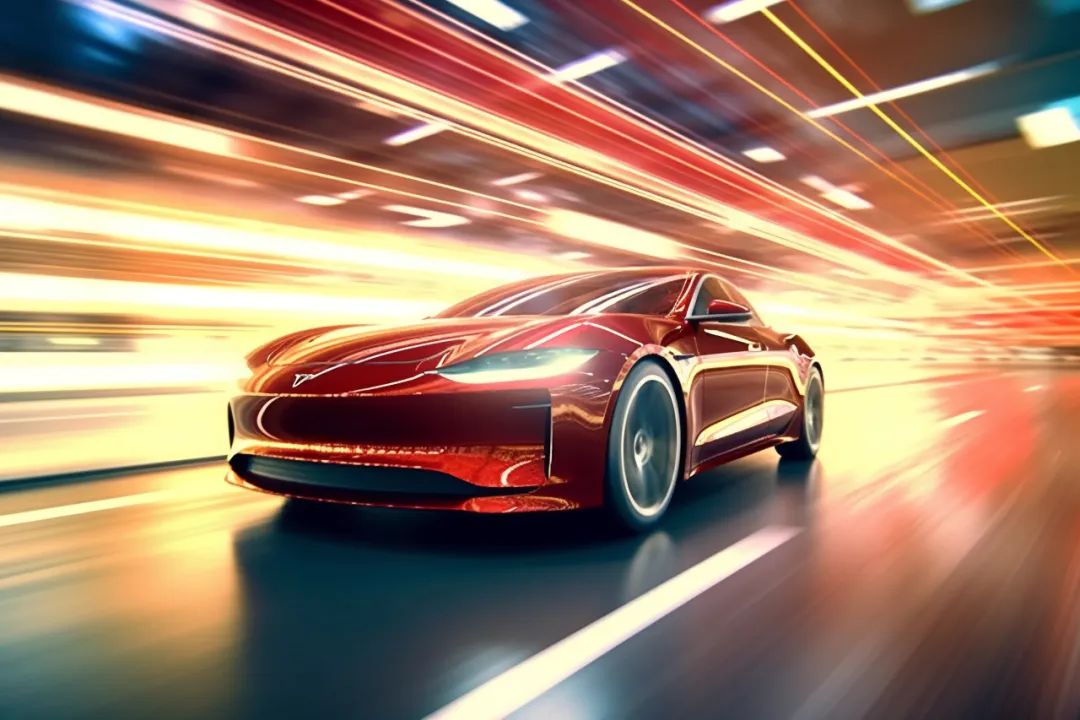US Electric Vehicle Tax Credit Policy May Change, What Should Automakers Do?
![]() 12/04 2024
12/04 2024
![]() 654
654
According to Reuters, the transition team of newly elected US President Trump is planning to cancel the $7,500 tax credit for electric vehicle purchases (approximately RMB 55,000).
During his presidential campaign, Trump condemned the tax credit policy, calling it part of a "green new scam" that would destroy the US auto industry. He believes that a rapid shift to electric vehicles in the US will lead to a flood of electric vehicles manufactured in other countries and drive up the purchase price of electric vehicles. Currently, his transition team is formulating plans to abolish the tax credit and rescind the stricter fuel economy regulations promoted by the Biden administration. Trump stated that the federal revenue recovered after canceling the tax credit will be used for infrastructure construction such as roads, bridges, and dams.
Statistics show that although far from meeting automakers' expectations, electric vehicle sales in the US have been on the rise this year. The tax credit policy for purchasing electric vehicles is a key provision of Biden's Inflation Reduction Act. Abolishing this provision will undoubtedly push up the purchase price of electric vehicles, dampen consumer enthusiasm, and ultimately lead to a decline in electric vehicle sales.

As one of the highest-selling electric vehicle dealers in the US, Jonathan Chariff, an executive at Midway Ford in Miami, believes that the existing tax credit policy reduces the monthly repayment burden on electric vehicle buyers. It is estimated that the $7,500 tax credit can reduce the monthly repayment by $200-250 (approximately RMB 1,457-1,822), making electric vehicles affordable for many people.
According to Cox Automotive data, the average selling price of electric vehicles in the US is about $57,000 (approximately RMB 420,000), while that of fuel vehicles is about $48,000 (approximately RMB 350,000). After enjoying a $7,500 tax credit, the price of electric vehicles will be close to that of fuel vehicles. Once the tax credit policy is abolished, some consumers will not be able to afford the high monthly costs, which will severely damage electric vehicle sales.
If electric vehicle sales decline and growth slows, it will force almost all automakers to cut electric vehicle production and delay the construction of related supply chains such as battery factories. In a slower electrification transition process, these seem no longer necessary.

As a close advisor to Trump, Tesla CEO Elon Musk believes that abolishing the tax credit will harm electric vehicle manufacturers in the US. Musk stated, "I think it will be devastating for our competitors but slightly damaging to Tesla."
When asked about President-elect Trump's opposition to the electric vehicle tax credit, Trump's transition team stated that he has a "responsibility to fulfill the promises he made during the campaign." However, abolishing the tax credit is not a foregone conclusion, and the proposal must receive the support of the new Congress led by the Republican Party. Many members of the new Congress come from areas that support the tax credit policy.
John Helveston, an assistant professor at George Washington University who studies electric vehicles and related policies, expressed doubt about Trump's ability to convince Republican legislators to support the abolition of the tax credit, as these tax incentives bring widespread benefits to many congressional districts, making the abolition of these policies politically challenging.
Additionally, David Rapallo, an associate professor of law at Georgetown University, also stated that if Trump abolishes the tax credit, it will be challenged in court.

Research institutions have pointed out that the tax credit policy not only targets consumers purchasing vehicles but also includes subsidies for automakers transitioning to electric vehicle production. These tax credits will help General Motors, Ford, and Stellantis transition from fuel vehicles to electric vehicles. Sam Fiorani, vice president of consulting firm AutoForecast Solutions, stated that these subsidies also help the Big Three automakers in Detroit (General Motors, Ford, and Chrysler) compete with foreign competitors.
Unlike Tesla, Ford and General Motors, although profitable overall, are still losing money in electric vehicles. Although both companies believe that as costs decrease and sales increase, the electric vehicle business will become profitable in the coming years. Fiorani believes that abolishing the tax credit will "harm the interests of the Big Three automakers in Detroit in the long run because they will lose competitiveness in the leap forward of electric vehicle technology compared to global competitors."
The attitudes of some US states may also pose resistance. California Governor Gavin Newsom recently stated that if the Trump administration cancels the federal tax credit, California will intervene and redouble its commitment to clean air and green jobs in California. He also requested that the California State Legislature convene a special session in December, with the agenda including increasing litigation funds to sue the Trump administration's budget.

Currently, the Alliance for Automotive Innovation, a trade organization representing most automakers, has written to Trump expressing support for the tax credit policy, believing it will help ensure that the US "continues to lead in manufacturing critical to national and economic security." However, General Motors, Ford, and Stellantis have not commented on the abolition of the tax credit.
Ultimately, whether or not there is a tax credit, the grand plan for the automotive industry to transition to electric vehicles will not change. Especially considering the huge investments already made, according to the Center for Automotive Research, the US automotive industry has invested at least $160 billion (approximately RMB 1.2 trillion) in planning, designing, and manufacturing electric vehicles since 2021.
Furthermore, according to the Wall Street Journal, the Trump administration is considering eliminating some safety regulations related to autonomous vehicles, such as the requirement that autonomous vehicles must have a human driver. Relaxing regulations related to autonomous vehicles will promote the development of autonomous driving technology and may have a significant impact on the autonomous vehicle industry.
Typesetting by Zheng Li
Source: Fastcompany
Image Source: Shutu Network








